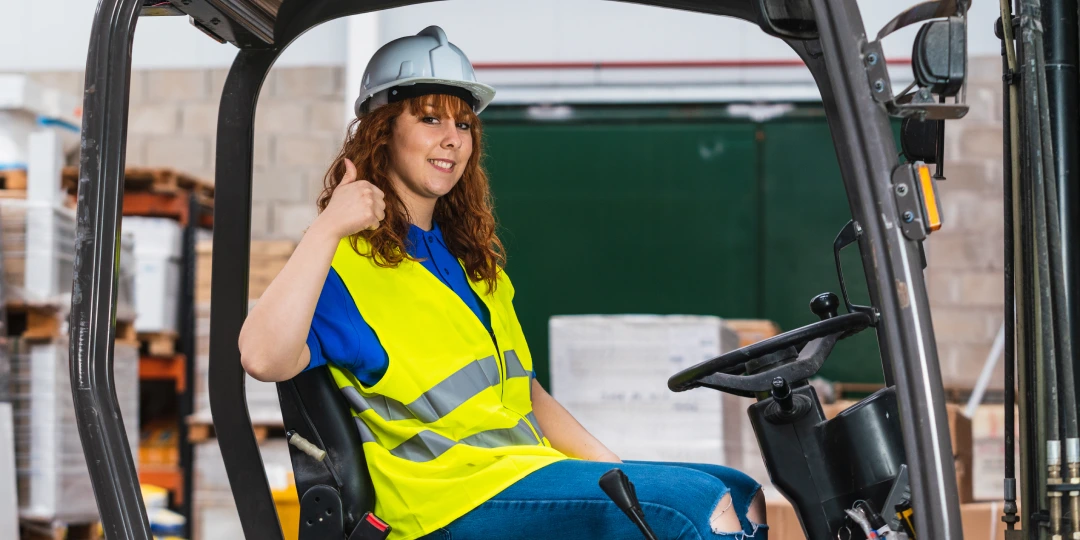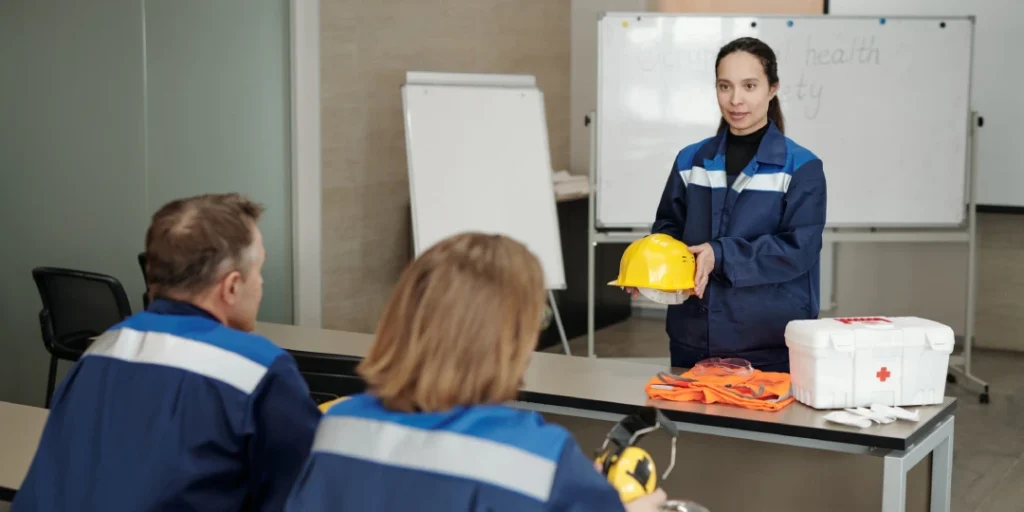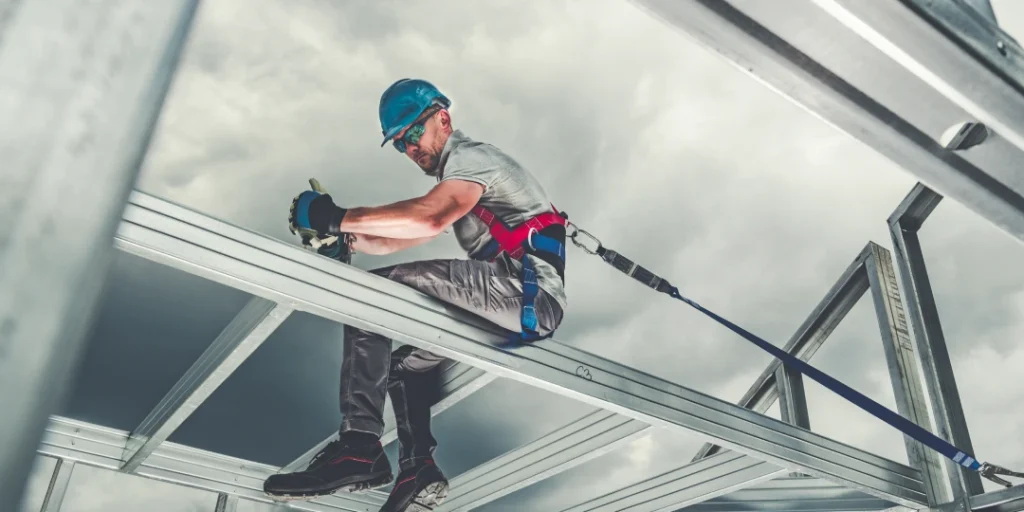Introduction: The Critical Need for Forklift Safety in Industrial Hubs
Nashville’s industrial landscape is growing rapidly. From bustling distribution centers to multi-phase construction sites, the heartbeat of the city relies on fast, coordinated movement of goods and materials. The forklift plays a central role in this system. These machines are vital for lifting, transporting, and organizing everything from pallets of consumer goods to construction supplies. Yet their power and utility also make them inherently dangerous when misused. Forklift accidents are not rare—they’re a leading cause of injury and property damage across industrial environments.
Improper forklift operation often results from a lack of formal training or outdated safety practices. Common incidents include rollovers, load drops, and collisions with pedestrians, all of which are preventable with the right education. The consequences of these accidents ripple far beyond the individual operator. Businesses suffer costly equipment damage, disrupted operations, legal exposure, and in some cases, permanent reputational harm. In cities like Nashville, where demand for skilled labor is already high, losing qualified workers to injury creates serious strain. This makes proactive forklift safety not just a legal matter, but a strategic one.
That’s where Fortier Loss Control comes in. As one of the most respected safety training providers in the region, Fortier offers focused, OSHA-certified forklift training tailored to the realities of Nashville’s industrial sectors. Their programs aren’t generic. They’re built to address the actual environments operators face—tight warehouse aisles, uneven outdoor terrain, variable lighting, and high foot traffic. Fortier doesn’t just certify forklift operators; it prepares them to anticipate risks, respond decisively, and operate with precision under pressure.
The OSHA Mandate: Why Certification Is More Than Just Compliance
Forklift operators are subject to strict safety standards under OSHA regulation 29 CFR 1910.178, which mandates that each operator must receive formal instruction, practical hands-on training, and a performance evaluation before being authorized to use powered industrial trucks. This isn’t a suggestion—it’s the law. Employers who overlook or delay forklift certification put their entire operation at risk. OSHA can levy penalties exceeding tens of thousands of dollars per violation, and in the case of repeat offenses or workplace accidents, those fines escalate quickly.
But compliance alone shouldn’t be the goal. OSHA certification is meant to establish a safety baseline, but businesses thrive when they treat it as a foundation rather than a ceiling. Forklift safety training reduces variability in operator performance and ensures a consistent safety culture across shifts and locations. Well-trained operators are quicker to spot mechanical issues, more effective at load handling, and far less likely to cause accidents that halt production. In this way, forklift certification is not just a regulatory requirement—it’s a cost-saving tool and a productivity booster.
Fortier Loss Control understands this better than most. Their forklift programs go beyond minimum OSHA criteria by integrating real-world application with policy adherence. Trainees are put through rigorous instruction that includes classroom theory, workplace-specific hazard recognition, and supervised operation under realistic conditions. Whether working in a high-speed shipping depot or a mixed-use facility, Fortier-trained forklift operators are equipped to manage risk intelligently. The result is a workforce that’s not only compliant, but competent—and confident.
Fortier Loss Control’s Unique Approach to Training
Unlike many one-size-fits-all training models, Fortier Loss Control takes a tailored approach to forklift instruction. Their programs are designed with an understanding that no two worksites are the same. Warehouses, construction zones, and logistics centers all present distinct hazards. Fortier’s instructors begin by evaluating the environment and the specific types of forklifts used, whether it’s sit-down counterbalance trucks or rough-terrain models. From there, they create a curriculum that speaks directly to the operator’s daily experience, ensuring the lessons feel practical, not theoretical.
The training itself is highly interactive. Instead of dry lectures or generic videos, Fortier’s forklift courses involve hands-on learning, real-time simulations, and discussion-based safety breakdowns. Operators engage with actual equipment in controlled settings, where they can practice turning radius precision, pallet stacking, and hazard avoidance under instructor supervision. The goal isn’t just memorization—it’s behavioral change. Forklift safety becomes second nature because operators have rehearsed it in real conditions, with guidance that corrects poor habits before they become risks.
What truly distinguishes Fortier Loss Control’s training is the background of its instructors. Each trainer has a strong foundation in logistics, warehousing, or industrial safety, and they bring that field experience into the classroom. This means operators aren’t being lectured by outsiders—they’re being coached by professionals who’ve done the job themselves. That credibility matters. It leads to higher engagement, better retention of information, and ultimately, safer forklift operations across Nashville’s growing network of industrial employers.

Nashville’s Logistics Boom: Why Demand for Certification Is Rising
Nashville is undergoing a logistics renaissance. With major companies like Amazon, Oracle, and regional shipping firms expanding distribution operations in Middle Tennessee, the number of forklifts in operation has surged. Warehousing space in Davidson and Rutherford counties is at an all-time high, and every one of those square feet requires skilled, certified forklift operators to move goods efficiently and safely. The spike in demand has created a parallel need for reliable training that can scale with this growth—something Fortier Loss Control is uniquely positioned to provide.
This boom comes with growing pains. Rapid onboarding, high turnover, and pressure to meet tight shipping schedules can all increase the likelihood of safety lapses. A single untrained forklift operator can cause thousands in damages, injure coworkers, or grind a facility to a halt. Nashville companies that overlook certification in favor of speed may gain short-term output, but they risk long-term consequences—from OSHA penalties to costly injury claims. In this climate, forklift certification is no longer optional—it’s operational insurance.
Fortier Loss Control responds to this challenge by offering fast, flexible, OSHA-compliant forklift training throughout the Nashville area. Their team works with businesses of all sizes, from family-run distribution outfits to large-scale corporate warehouses. Whether it’s certifying a handful of new hires or upskilling an entire crew, Fortier adapts quickly without compromising the depth of instruction. Their ability to scale with Nashville’s logistics sector makes them a go-to partner as the city continues to expand its industrial footprint.
Anatomy of a Fortier Forklift Safety Course
A Fortier Loss Control forklift safety course isn’t just a certificate mill. It’s a structured, layered experience that balances OSHA compliance with hands-on mastery. The course begins with classroom instruction, covering foundational topics such as load dynamics, lift truck classifications, operator responsibilities, and equipment inspection procedures. Trainees are introduced to federal regulations, employer obligations, and common safety failures, all contextualized for the types of forklifts they’ll be using.
Once the theoretical groundwork is laid, the training shifts into a hands-on phase. Operators are guided through real forklift maneuvers, such as stacking, reversing in tight aisles, and navigating loading docks. Every drill is supervised by a certified trainer, ensuring mistakes become learning moments, not habits. Emphasis is placed on visibility, speed control, balance, and load security—core principles that separate safe operators from risky ones. These practical exercises mirror real-world challenges and prepare workers for immediate on-site deployment.
Finally, each participant undergoes a formal evaluation, both written and practical, to confirm comprehension and skill readiness. Fortier also conducts worksite-specific assessments when needed, evaluating how well an operator applies safety principles in their actual work environment. This attention to context makes the certification more meaningful. Forklift operators trained by Fortier aren’t just compliant on paper—they’re capable, alert, and job-ready. In a city like Nashville, where industrial output is rising fast, that level of preparation is invaluable.
Common Forklift Hazards—and How Fortier Tackles Them
Forklifts are deceptively simple machines. Despite their compact size and maneuverability, they carry enormous weight and pose serious hazards when handled carelessly. Common incidents include tip-overs caused by unbalanced loads, collisions with shelving units or pedestrians, and crushing injuries from reversing blindly in congested spaces. Slippery surfaces, poor lighting, and operator fatigue can magnify these risks, particularly in busy warehouse environments. In Nashville’s fast-paced industrial zones, these hazards are not hypothetical—they’re daily realities.
Fortier Loss Control integrates these hazard scenarios directly into its forklift training curriculum. Rather than focus solely on textbook safety rules, Fortier simulates real-world challenges to expose operators to risk in a controlled environment. Trainees practice navigating blind spots, managing unstable loads, and operating under time pressure without compromising safety. This approach builds muscle memory and encourages smart decision-making, even when under stress. Forklift operators trained this way don’t just avoid mistakes—they anticipate them.
In addition to hands-on hazard drills, Fortier places strong emphasis on situational awareness and communication. Operators are trained to understand their surroundings—not just the forklift’s mechanics. This includes identifying high-risk zones, understanding pedestrian flow, and interpreting hand signals or site-specific warning systems. By focusing on both equipment handling and environmental awareness, Fortier creates operators who are not only capable but also attentive. This comprehensive hazard mitigation strategy directly reduces injury rates and improves operational continuity across Nashville’s warehouses and logistics facilities.

How Fortier’s Trainers Stand Apart
The effectiveness of any safety program hinges on the people delivering it. At Fortier Loss Control, forklift instructors are selected not just for their certifications, but for their real-world experience and communication skills. Many of Fortier’s trainers come from backgrounds in logistics, plant management, or heavy equipment operation. They’ve worked on the same warehouse floors and construction sites as their trainees, which gives them credibility and relatability that textbooks can’t provide.
What sets Fortier’s trainers apart is their ability to read the room. They adjust the pace, language, and depth of training to match the audience—whether it’s a team of seasoned warehouse veterans or a group of first-time forklift operators. They avoid generic scripts and instead engage with questions, offer on-the-spot demonstrations, and draw from their own field experience to explain safety concepts. This makes the training dynamic and memorable. Forklift safety isn’t just understood—it sticks.
These trainers also act as on-site consultants when needed, offering advice on layout improvements, safety signage, and workflow optimization. Their role doesn’t end when the class does. They’re invested in the broader safety culture of the workplace. In a market like Nashville, where rapid industrial growth often outpaces internal training capacity, having access to seasoned forklift instructors who can guide both individuals and teams is a game-changer. Fortier’s trainers elevate the learning experience into something that drives long-term behavior change and reduces risk at scale.
On-Site Training: Safety at the Source
Training forklift operators off-site can disrupt workflows, add unnecessary travel costs, and separate employees from the environments they actually work in. Fortier Loss Control resolves this by bringing OSHA-certified forklift training directly to the job site. This approach not only minimizes downtime but also enhances the relevance of the training itself. Operators learn in the same aisles, loading zones, and storage areas they navigate daily, reinforcing familiarity and spatial awareness under guided instruction.
By conducting forklift training at the worksite, Fortier’s instructors are able to tailor safety guidance to each facility’s unique hazards. Whether it’s low-clearance areas, mixed pedestrian zones, or complex racking systems, trainers assess the space and adjust the instruction accordingly. This level of specificity ensures that operators aren’t just learning general best practices—they’re applying principles directly to the environment where they’ll be held accountable. It turns abstract safety rules into practical, repeatable habits grounded in muscle memory.
The benefits extend beyond the operator. Supervisors and safety managers are invited to observe or participate, allowing them to align internal protocols with training standards. Forklift safety becomes a shared priority rather than a siloed responsibility. For Nashville companies working on tight schedules or facing rapid onboarding cycles, Fortier’s on-site model is especially valuable. It embeds OSHA compliance into the normal rhythm of business without compromising on quality or attention.
Beyond Certification: Ongoing Safety Support
Forklift safety isn’t a one-time concern—it requires sustained attention. Operators change, equipment evolves, and regulations are updated regularly. Fortier Loss Control understands this, which is why they offer ongoing support beyond the initial certification. Their services include refresher courses, policy consultations, and compliance audits to ensure that safety remains a living, breathing part of a company’s operations, not something that fades once the ink dries on a certificate.
Refresher training is particularly critical in high-turnover environments like Nashville’s warehouses and fulfillment centers. Operators may go months without a formal review, leading to a gradual erosion of safety practices. Fortier helps employers schedule timely recertifications and skills updates to keep everyone sharp. These sessions are concise but effective, often focusing on recent incidents, equipment updates, or newly identified risks in the facility. It’s a proactive strategy that prevents problems before they escalate.
Additionally, Fortier’s team serves as an ongoing resource for safety managers, offering insights into evolving OSHA guidelines or recommendations on documentation protocols. Their commitment doesn’t stop with the training event—they stay engaged, helping companies track expiration dates, document compliance efforts, and maintain readiness for inspections. In this way, Fortier becomes more than a training provider—they become a partner in building a resilient, safety-first workplace where forklift operations are consistently well-managed and risk-aware.

Frequently Asked Questions
1. Who needs forklift certification under OSHA regulations?
Any employee who operates a powered industrial truck, including forklifts, is required by OSHA (under 29 CFR 1910.178) to be properly trained and certified. This applies to operators in warehouses, construction sites, distribution centers, and other industrial settings. Certification must include formal instruction, hands-on training, and a performance evaluation.
2. What makes Fortier Loss Control’s forklift training different from other programs?
Fortier Loss Control provides on-site, OSHA-certified forklift training that’s tailored to each facility’s unique environment. Their instructors come from real-world industrial backgrounds, offering practical insight alongside regulatory instruction. Training is hands-on, scenario-based, and designed to instill lasting safety habits—not just check boxes for compliance.
3. How often does forklift certification need to be renewed?
OSHA requires forklift operators to be re-evaluated every three years, or sooner if they’re involved in an accident, operate unsafely, or are assigned to a different type of truck. Fortier Loss Control offers refresher courses and ongoing support to ensure businesses stay compliant and operators remain confident in their skills.

Conclusion: Invest in Safety, Reap Operational Strength
In Nashville’s rapidly expanding industrial ecosystem, the forklift remains a backbone of productivity. But its benefits come with significant risk if not handled responsibly. Poor training leads to injuries, fines, and operational setbacks—consequences that no business can afford. That’s why OSHA-certified forklift training is not just a legal necessity but a strategic investment. It lays the groundwork for efficiency, accountability, and long-term performance.
Fortier Loss Control has emerged as a trusted leader in forklift safety across Nashville because they don’t just train—they transform. Their programs are immersive, relevant, and delivered by professionals who understand the stakes. Whether it’s through site-specific instruction, experienced trainers, or long-term compliance support, Fortier Loss Control equips businesses to face the challenges of modern material handling with confidence.
The takeaway is clear: safety is strength. And with Fortier Loss Control, that strength is built from the ground up—one well-trained forklift operator at a time.



